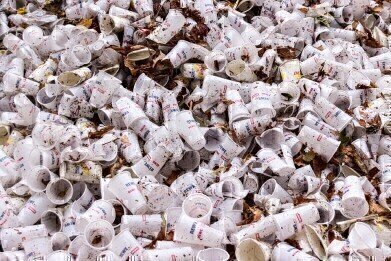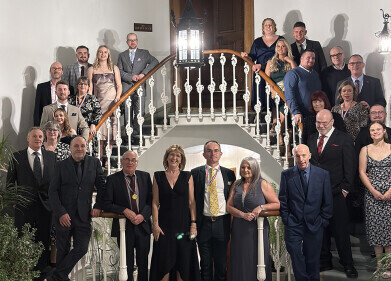Soil remediation
Can You Build a House from Plastic Waste?
Dec 02 2016
In 100 years’ time, perhaps the fairy-tale of the three little pigs will have to be expanded to include a fourth porcine builder – one who constructs his home from plastic. As well as thwarting the bloodthirsty schemes of the hungry wolf, this eco-friendly pig would also be doing his bit to save the environment.
While building houses from plastic seems an unlikely scenario, one innovative entrepreneur from Colombia has tackled the twin global problems of homelessness and pollution by doing exactly that.
A surplus of plastic
Currently, we as a species produce a staggering amount of plastic waste. A recent six-year study found that there are roughly 5.25 trillion pieces of plastic in our oceans, which equates to around 269,000 tonnes or 807 Boeing jumbo jets. And that’s just the oceans!
With landfill sites only having a finite amount of space and plastic a non-biodegradable material, scientists have been struggling to find a way to neutralise the long-lasting and damaging effects that this most common of commodities could have on our planet. Among other avenues, much research has been poured into renewable energy, landfill gas and energy from waste as a means of turning a useless waste material into something valuable.
But while recycling plastic into a means of energy production is an exciting and worthwhile method of reusing this waste, a Colombian entrepreneur has taken a different approach.
Plastic concepts
Oscar Méndez, an architect and environmentalist based in the Colombian capital of Bogotá, has made it his life’s mission to reduce our carbon footprint on the world while simultaneously providing much-needed homes for the impoverished quarters of society.
In 2010, Méndez launched his company Conceptos Plásticos (Plastic Concepts) which aimed to tackle both problems by reusing some of the 6,300 tonnes of rubbish sent to landfills in the Colombian capital every day.
“The problem is the negative impact of plastic in the environment and the existence of fragile housing in vulnerable communities, which accelerates global warming and the inequality gap,” he explained. “Our materials contribute in the fight against extreme poverty, improve informal settlements (such as refugee camps) and create sustainable living conditions. Closed plastic recycling is one of the best ways to fulfil a social task and benefit vulnerable communities.”
An award-winning alternative
Though he faced early problems in convincing investors to think outside of the box when it comes to construction materials, he recently secured considerable funding for the project. His company scooped a $300,000 windfall in The Venture, an annual competition organised by whiskey makers Chivas Regal set up to find the most forward-thinking start-ups in the world. Conceptos Plásticos beat off the competition of more than 2,500 other organisations to claim the prize.
Now, Méndez is looking forwards and with considerable financial backing and the apparent interest of over 70 countries across the globe, the future is looking rosy for plastic housing. Brick by brick, he and his company are helping to reduce homelessness and pollution in one fell swoop.
Events
Carrefour des Gestions Locales de L'eau
Jan 22 2025 Rennes, France
Jan 29 2025 Tokyo, Japan
Feb 05 2025 Nantes, France
Feb 16 2025 Kampala, Uganda
Feb 26 2025 Chennai, India










